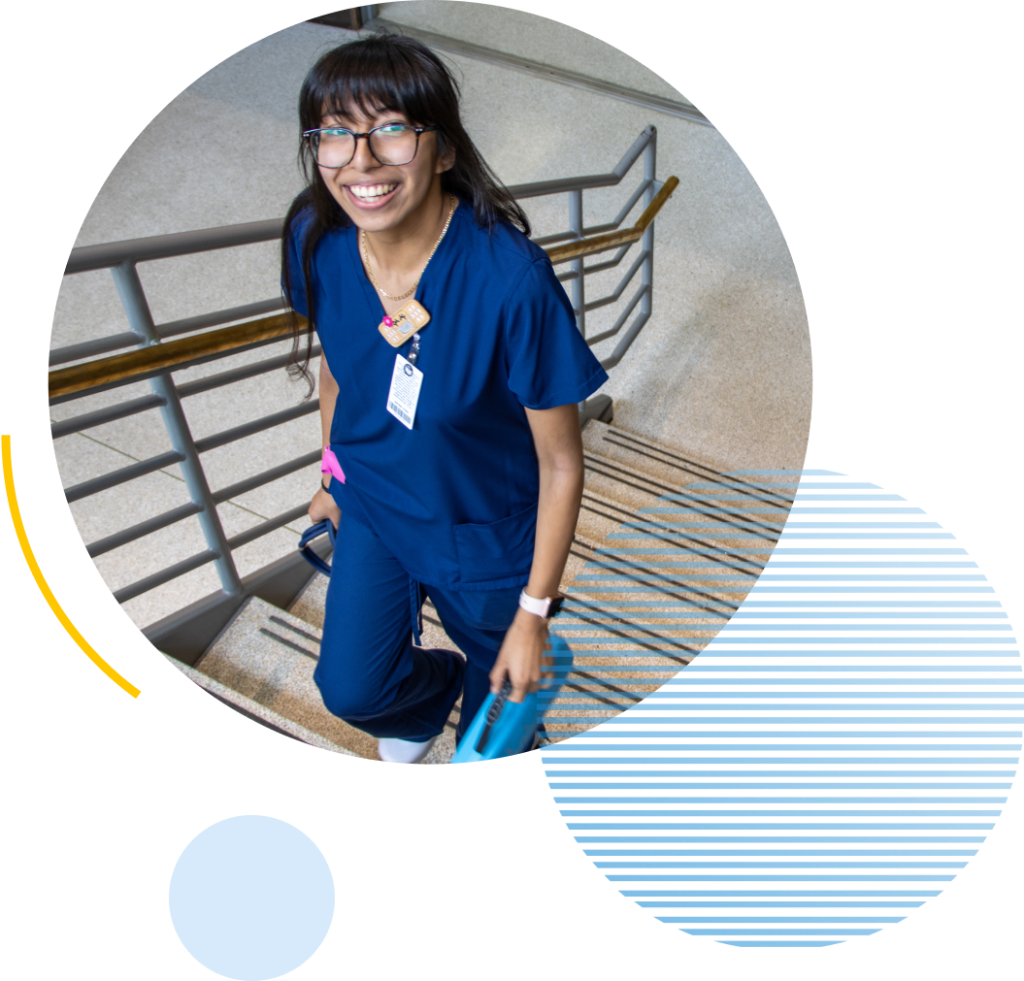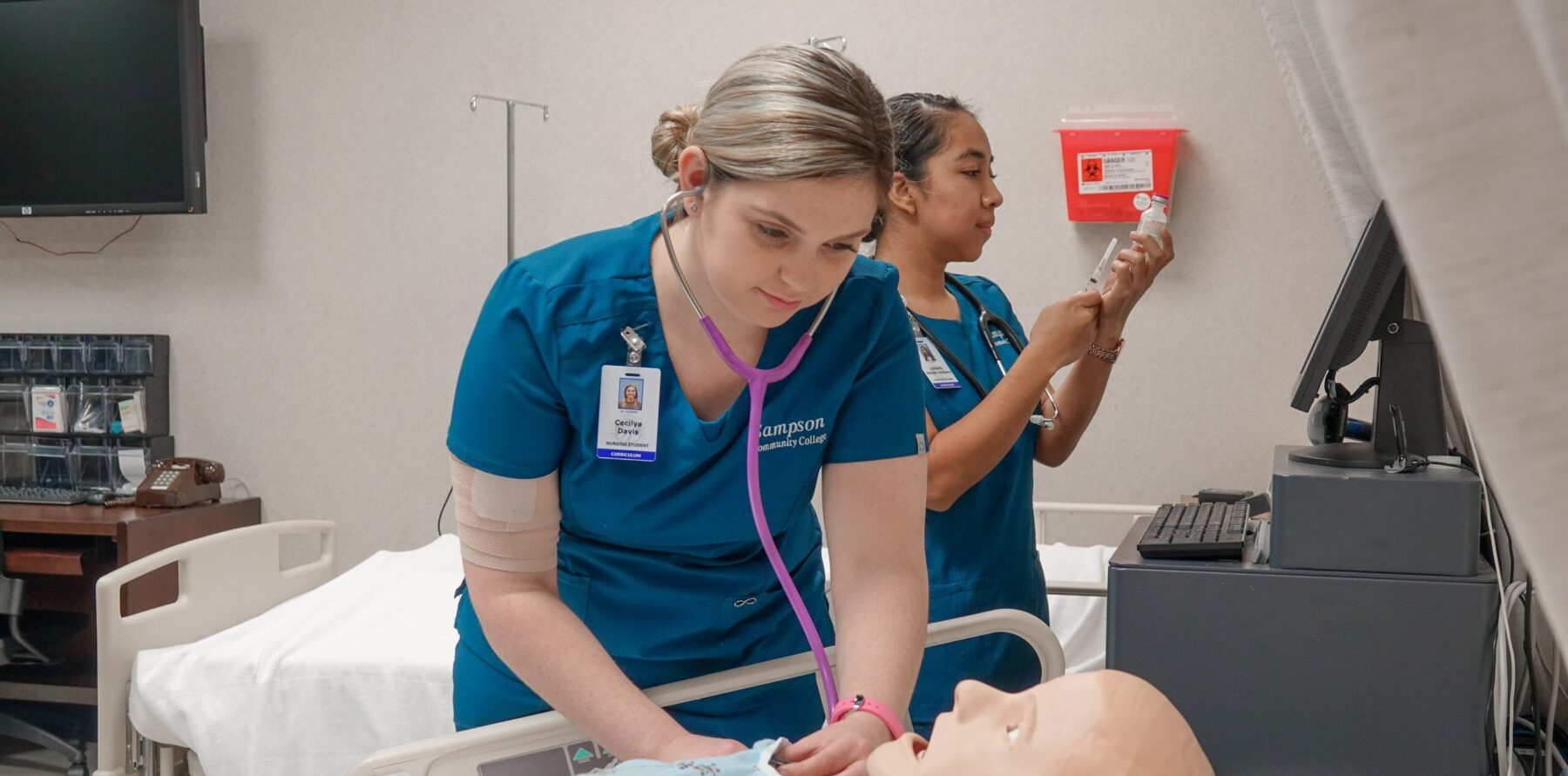Overview
The Practical Nursing curriculum provides knowledge and skills to integrate safety and quality into nursing care to meet the needs of the holistic individual which impact health, quality of life, and achievement of potential.
Course work includes and builds upon the domains of healthcare, nursing practice, and the holistic individual. Content emphasizes safe, individualized nursing care and participation in the interprofessional team while employing evidence-based practice, quality improvement, and informatics.
Graduates are eligible to apply to take the National Council Licensure Examination (NCLEX-PN) which is required for practice as a Licensed Practical Nurse. Employment opportunities include hospitals, rehabilitation/long-term care/home health facilities, clinics, and physicians’ offices.
Outcome Data 2023-2024
Students Graduated: 15, 9
NCLEX Pass Rates: 95%, 100 %
Retention Rate: 81%, 27%
Job Placement Rate: 100%
Applicants seeking to enter the Licensed Practical Nursing (LPN) program must complete Special Admissions requirements.
Online application for Fall 2025 is available from October 1, 2024 -January 31, 2025.
Credential Requirements
Fall Semester I
| Title | Description | Credit |
|---|---|---|
| ACA 122 | College Transfer Success | 1 CR |
| NUR 101 | Practical Nursing I | 11 CR |
| BIO 168 | Anatomy & Physiology I | 4 CR |
| PSY 150 | General Psychology | 3 CR |
| Semester Credit Hours | 19 CR |
Spring Semester I
| Title | Description | Credit |
|---|---|---|
| ENG 111 | Writing and Inquiry | 3 CR |
| NUR 102 | Practical Nursing II | 10 CR |
| BIO 169 | Anatomy & Physiology II | 4 CR |
| Semester Credit Hours | 17 CR |
Summer Semester I
| Title | Description | Credit |
|---|---|---|
| NUR 103 | Practical Nursing III | 9 CR |
| Semester Credit Hours | 9 CR |
Minimum hours needed to graduate: 45 CR
As of Spring 2024, SCC will no longer offer the PN evening class schedule.
Statement Regarding Vaccinations
Sampson Community College does not require specific vaccines in order to enroll or attend classes on campus. Nursing and health science programs require clinical hours to be completed at one or more at clinical sites under agreement with the College. Students admitted to these programs must comply with the requirements set by outside clinical agencies which may include a criminal background check, drug screen, physical, and/or specific vaccines. Decisions about an individual student’s presence in the clinical environment are made by the clinical agencies.
Clinical sites may be subject to the COVID-19 requirements of the Centers for Medicaid and Medicare Services or other requirements established by the clinical site. Students are guests in these clinical facilities and in order to maintain clinical privileges, must abide by the clinical site’s requirements for students and faculty.
Notice of changes of agency requirements may or may not provide students or faculty with advance notice of any changes. If vaccination becomes a requirement at one of SCC’s clinical agencies, lack thereof may affect students and their completion of a course and program.
If requirements are made by an SCC clinical agency and a student chooses not to comply, they may not be eligible to complete the clinical requirements of the program and will become unable to complete a course and the program.
Nursing Accreditation and Approval
The Associate Degree and Practical Nursing programs at Sampson Community College located in Clinton, NC are accredited by:
Accreditation Commission for Education in Nursing (ACEN)
3390 Peachtree Road NE, Suite 1400
Atlanta, GA 30326
Phone: (404) 975-5000
The most recent accreditation decision made by the ACEN Board of Commissioners for the Associate Degree and Practical Nursing programs is Continuing Accreditation.
The Associate Degree and Practical Nursing programs are given full approval by:
North Carolina Board of Nursing (NCBON)
4516 Lake Boone Trail
Raleigh, NC 27607
Phone: (919) 782-3211
Licensure Disclosures
The nursing programs at Sampson Community College satisfy the professional licensure requirements in North Carolina and prepare students to sit for these exams. However, requirements in other states may be different. North Carolina is considered a compact state regarding licensure. If you are considering a program that may lead to a professional license, it is advised to inquire with your prospective state Board of Nursing.
Help Paying for School
Students enrolling in for-credit curriculum courses can apply for multiple forms of financial assistance to help pay for school including Federal Student Aid and SCC Foundation Scholarships.




